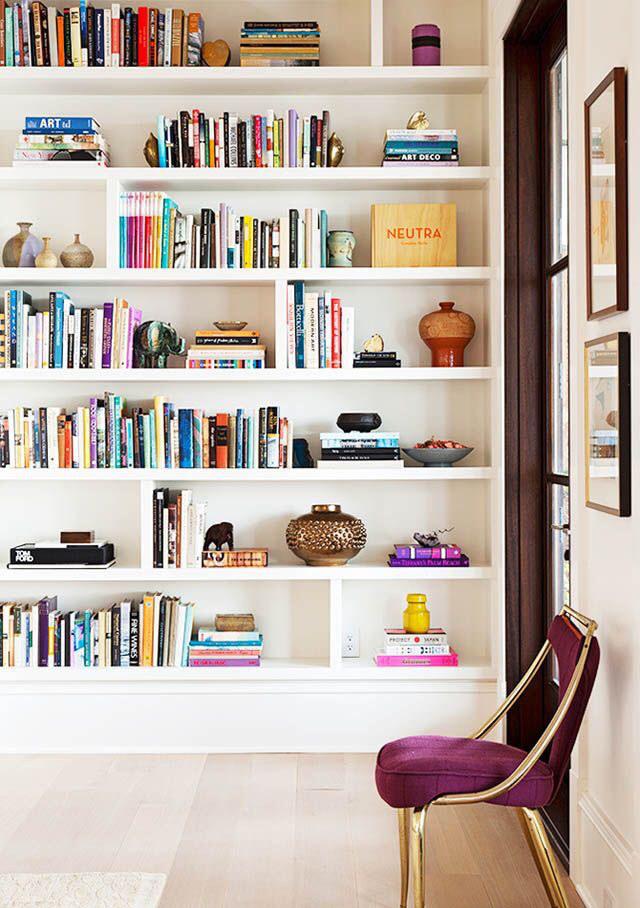Choose your vision Quite simply, how would you like your space to feel? What would you like to achieve? How do you imagine living and what would that look or feel like? Forget interior design for now, we are talking about how you are going to live and function in the space and how that is going to improve your life. You might choose a picture from a magazine or Pintrest, but I prefer my clients to put it down in writing. This really focuses the mind on the outcome and when the decluttering gets tough, the vision brings us back to our overall objective and keeps us motivated to continue. Choose bulky When deciding where to begin, chose an area in your home where you will be able to make a reasonably big impact. Basically we are thinking bulky items here. Getting rid of larger items first such as clothing or old electrical goods creates extra space quickly and when you start to see immediate results you will gain motivation to keep going and maybe even feel a spark of excitement. Don't start with a filing cabinet of old paperwork, you're likely to get fed up with it before you've made any visible progress and it could put yourself off the whole thing. Choose easy Decluttering can be really tiring. As you are faced with decision after decision over every single item you own, decision fatigue can quickly set in. I recommend starting with items that are really easy to make decisions over. Avoid personal and sentimental items such as photographs, letters, diaries, cards and school reports as you'll have a tendency to spend your decluttering time reminiscing rather than letting go. Just as with any new habit or exercise routine, you need to warm up first, so think about tackling your wardrobe or old magazines or out of date food in the pantry first. Choose grouping When working with a client, one of the things we find most useful is to group similar items together first. By gathering together types of items you can see just how many Stanley knives, spatulas, biros or post it notes you actually own. Sometimes seeing the shear quantity of unnecessary items is enough to encourage you to pare them down. Secondly once items have been grouped they are then far more easy to store. Everything has a natural place within the home and once sorted it become a joy to decide on these natural places. Choose help If your are feeling totally overwhelmed then by all means get some help in. A trusted friend can often help us to see our clutter in another light and encourage us to let go. Not to mention another pair of hands is going to come in very useful when all that stuff has got to be moved and shifted. If you're not keen to get a friend involved but really do need some help then a Professional Declutterer may be what you need. Professional Declutterers cover a whole range of services from streamlining technology, helping you move house, decluttering wardrobes, organising paperwork and even working with hoarders. They operate discretely and without judgement. Check out the Association of Professional Declutterers and Organisers to find one near you. Choose small Setting yourself one small objective at a time is the way forward here. Don't start by thinking you're going to clear the whole house, the whole attic or even a whole room in one day. Firstly you'll really have to go some to achieve such a big objective and the danger is that you could lose motivation and wear yourself out. Instead, choose a small area such as a kitchen cupboard or underwear drawer or your shoes. Set aside some time and go for it. The psychology of achieving something small will motivate you to continue far more then if you'd tackled twice as much but not finished. Choose patience Rome wasn't built in a day and you didn't accumulate a life times worth of clutter overnight. If it has taken years to accumulate, it is going to take a while to let it go. So be patient with yourself and the process, work steadily at a pace you can maintain. Rather like going on a diet or training to run a marathon, don't expect to lose all the weight straight away or be able to run 26 miles after one weeks training. This will be rewarding but you'll need patience and persistence. Choose action And by this I mean as soon as you have finished decluttering a particular area, take action straight away to get it out of the house. You might be tired after making all those decisions and shifting stuff around, but honestly making one final push to physically remove the items from your home will be worth the effort. So put it in the car straight away and take to your local charity shop or recycling centre without delay. Rather than procrastinate and think you can drop it all off next time you are in town, make time to do it right at the end of the decluttering session. For a start, you will be able to see the impact you've made as soon as you walk back into the house, you won't be tempted to change your mind and sneak things back into the home and the house won't be cluttered up with your discarded items, ironically causing you more clutter! So, what are you waiting for? Good luck Got your own decluttering tips? Then please share them here.
2 Comments
You can physically see the change.
Seeing the difference you have made to an area, is incredible. The space looks so much better, it may even feel bigger. It's not like you've sat at a desk and typed into a computer or had meetings or watched TV. You can tangibly see what has been achieved and the spaciousness that has been created. Your efforts have made this happen and seeing those results so instantly is incredibly rewarding. It's a bit like a post work out endorphin rush. I think that something magical happens when I'm decluttering with a client. We start by discussing what we are going to do that day and setting some goals or objectives, we then start to slowly tackle the chosen area, limbering up we take an item and the client umms and ahhs about whether to keep it or not - it's like an exercise warm up routine. The first few items take careful, slow decisions (gentle stretching to warm up the decision making muscles) but once the warm up is complete, they pick up the pace. By the time we've done 30 minutes we are running at full pace, the client is in the zone and the decision are being made swiftly and effortlessness. This momentum gives the client the energy to keep going, they are no longer thinking about what the discarded items meant to them in the past or what will happen to them in the future, they are focuses on the goal, over taken by the excitement of the work out and where the journey is taking them. Now, I'm not a medic but I'm convinced that some "feel good" chemical is released into the body through this process, producing a natural high similar to the endorphin rush post exercise. It feels cleaner It might be because you got the duster out, it might be because it feels more spacious or it might be because of Feng Shui and the energy in your decluttered space can circulate better. Who knows? But the long and the short of it is that IT feels cleaner and that makes US feel cleaner and that makes US feel good! You've done something good If, like me, you would rather give your old possessions to charity than see them go to landfill, you will also have the feel good factor of having done something good for others as well as something good for the environment. You feel a sense of freedom Over the years I have let go of all manor of possessions; clothes, furniture, books, cooking equipment handed down by my mother, sports equipment from sports I no longer did, photographs from my school years, my half marathon medal, 10 years worth of car insurance documents, etc etc. And I honestly say, hand on heart, that I have not once regretted any of it. I may have spent a long time making some of those decisions, it might have taken me years to feel ready to let some items go. But in the end I did it and I never looked back. I never actually missed any of them once they'd gone. I might have given some a wistful look as I carried them from the car to the charity shop but that's was all. Instead of mourning the parting of these things, I actually felt a sense of freedom, as those items no longer had a hold over me. I didn't need to look after them anymore. I didn't need to find a storage place for them in my home. I didn't need to think about what to do with them every time I opened a cupboard and saw them. I didn't have to decide not to wear them every time I got dressed. I was free from them! And that felt good too! It motivates you to do more decluttering. Is it any wonder that after all the benefits and highs of decluttering one space, that we want to do more? You can see the improvements and you feel better straight away so go with that momentum and you may be amazed at what you can achieve. Having said that, don't be surprised if you also feel tired. Making all those decisions can be exhausting, so my advice is to pace yourself. Set aside a couple of hours a week for decluttering. That way you maintain your energy levels and momentum And finally By letting go of the old you are making space for the new to come into your life. Decluttering is not a therapy but it does seem to be incredibly therapeutic. It's as if the things that we keep around us that represent the past, are somehow keeping a small piece of us in the past. Old school reports remind us our our youth, clothes that no longer fit remind of of another time in our lives, a letter from old boyfriends/girlfriends remind us of that relationship and how we felt at that time. However rose tinted or otherwise the past seems to us, it is not helping us to live mindfully in the present and sometimes can even prevent us from moving into the future. By letting go of the old, the energy that was tied up in the past is released and this in turn makes space for the new to come into our lives. Time and time again, clients start out to declutter their homes just to get a bit more space and find that their lives have taken a positive turn. What has been your positive experience of decluttering? |
AuthorHelen Cousins Archives
November 2017
Categories
All
|
Proudly powered by Weebly


 RSS Feed
RSS Feed